5 Best Free Introductory Computer Science Courses

Blog post by Esther Soyelu-Aro,
Published at September 28, 2023
Are you breaking into the tech industry and on the lookout for free computer courses to ease your journey? These free resources on the internet are available to you. You don’t need to earn a university degree to understand computer science, not with the amount of resources on the internet.
On the other hand, you may not have a tech career in mind but you probably have enough curiosity to kill a hundred cats. How does a computer work? What’s the idea behind programming? How did the Internet come to be? Is programming really difficult? What’s the technicality/principle behind all of this?
Whichever way you’re inclined, these free courses would give you a basic understanding of computer science and programming, specifically crafted with a beginner like you in mind.
1. Harvard’s CS50 Introduction to Computer Science
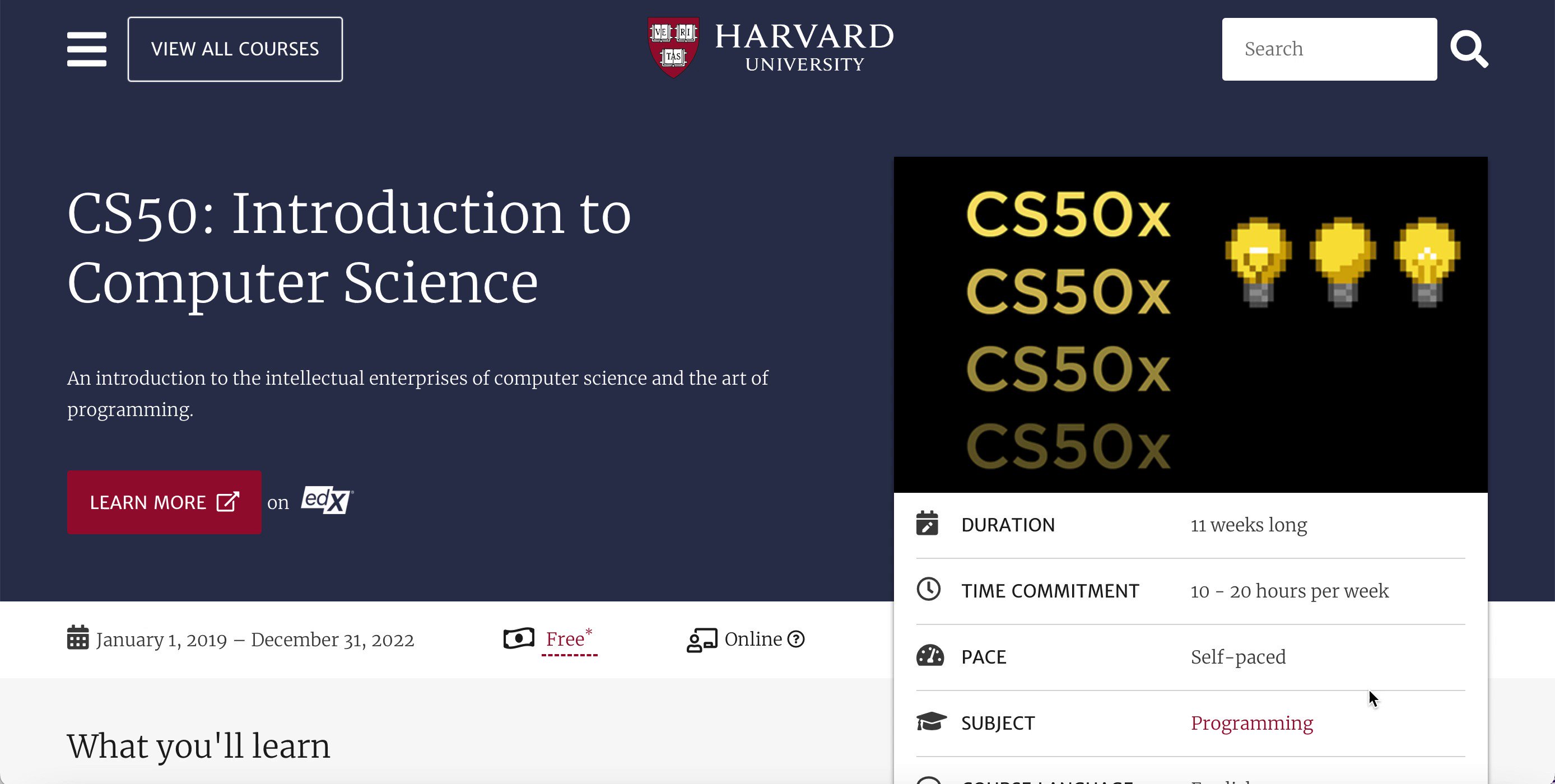
Image source: X
This is undoubtedly one of the more popular introductions to computer science courses. If you’re looking for an extensive introduction to computer science and the art of programming, this would be a great fit for you.
This self-paced program, developed by Harvard’s School of Engineering and Applied Sciences in partnership with Edx, is designed to help you build a broad understanding of programming, solve programming problems efficiently, and familiarize yourself with programming languages such as SQL, C, Python, CSS, and HTML, some of which are among the most in-demand programming languages in 2023.
The course also covers topics like abstraction, algorithms, data structure, encapsulation, resource management, and others. The on-campus version of this is described as “Harvard’s largest course.” 10–20 hours per week for a duration of 11 weeks are required to complete this course. You have to get a satisfactory score on nine (9) problem sets and a final project to be eligible for a certificate.
Although the course itself is free, you would need to pay for a certificate.
2. CS101: Introduction to Computer Science by Saylor
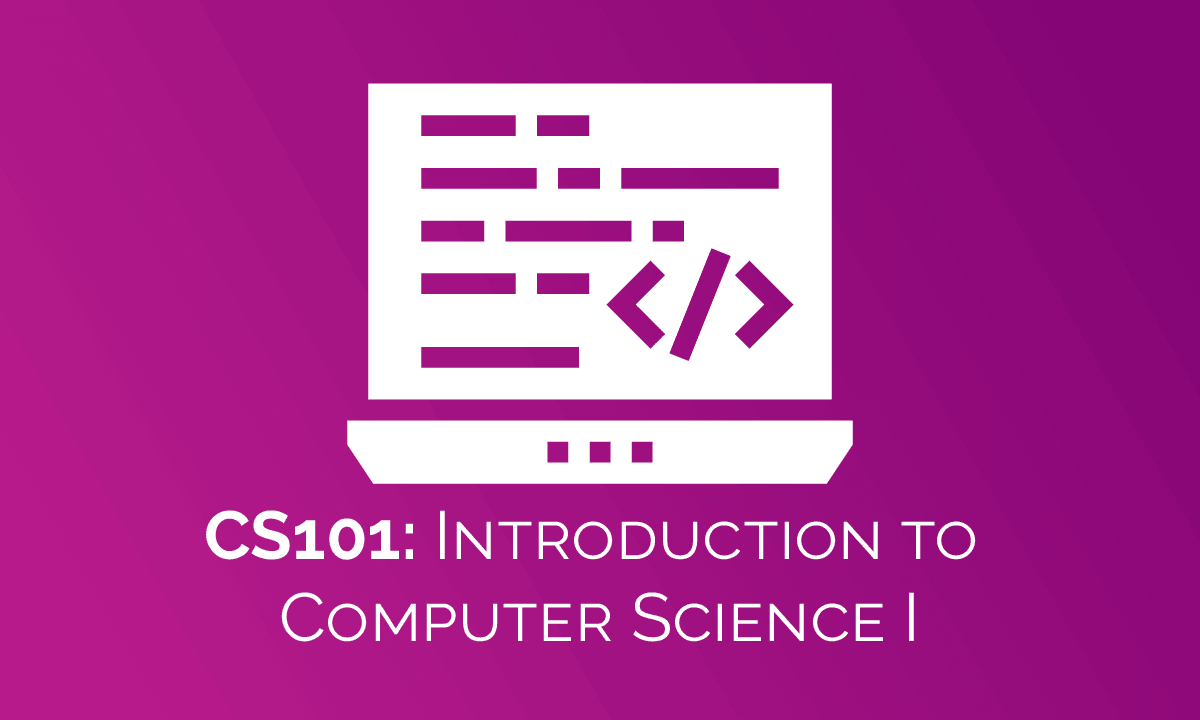
Image Source: Class Central
Saylor Academy is a non-profit learning platform that provides free and open online courses for anyone to learn. Designed for people with no background in programming, this course introduces you to the fundamentals of programming and the history of software development.
It also explores object-oriented programming concepts such as objects, classes, inheritance, and polymorphism. However, emphasis is placed on the use of Java programming language and how it demonstrates these topics. It takes 52 hours to complete. Unlike Harvard’s CS50 Introductory Course, Saylor provides you with a free certificate when you’re done.
3. Crash Course Computer Science
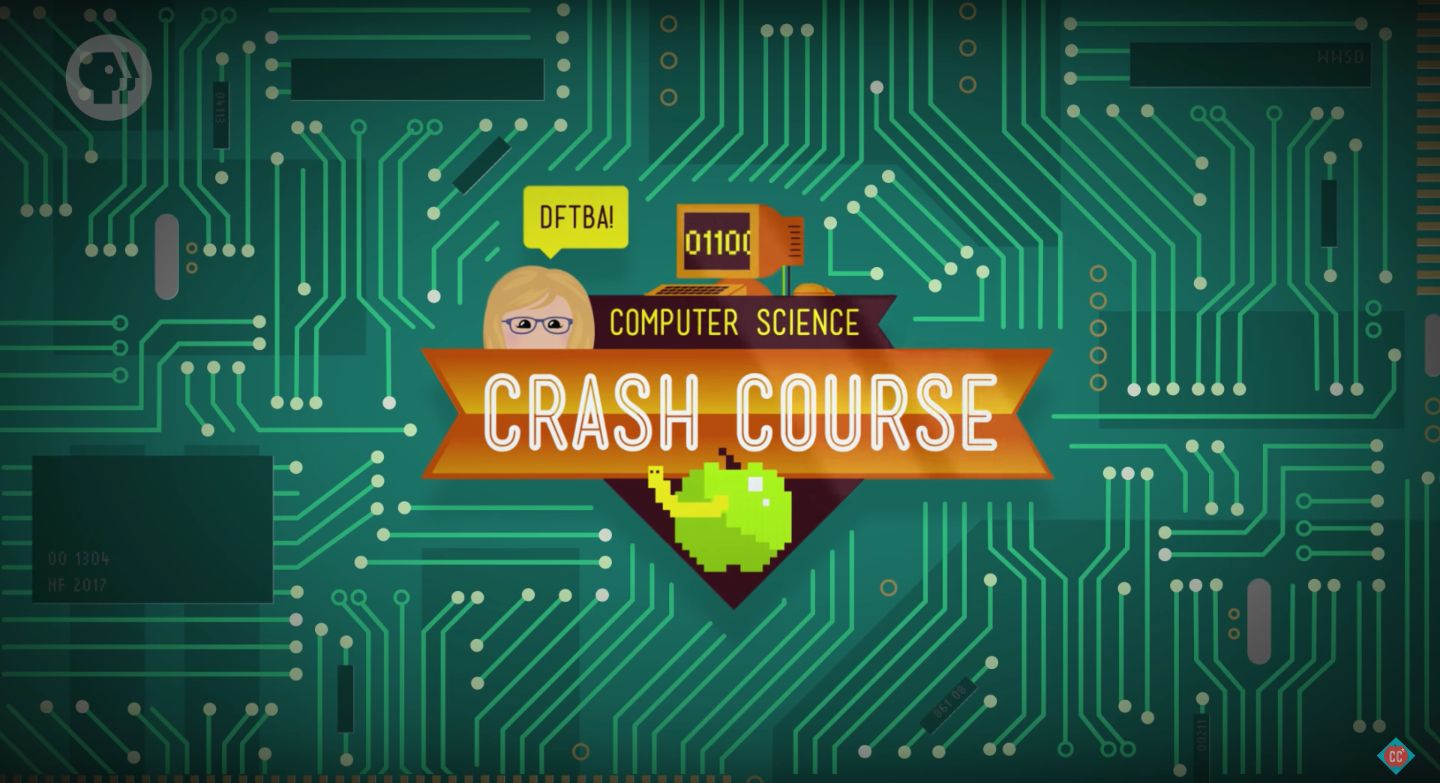
Image Source: IMDb
If you’re a complete beginner in computer science and happen to prefer visual learning, this computer science course would be an absolute joy for you. This crash course is put together as a 41-part series by a YouTube Channel named “CrashCourse”.
That sounds like a lot, right? No need to worry. Each series varies between 10–13 minutes in length and includes fun animations to help you understand the most basic concepts of computer science.
Think of this course as a building block. It begins all the way back from the abacus, the earliest form of computing, and builds on to binary, logic gates, programming, software engineering, 2D-3D graphics, the internet, cybersecurity, cryptography, and many more.
You don’t earn a certificate when you’re done, but you leave with a better understanding of how computers work.
4. MIT’s Introduction to Computer Science and Programming Using Python
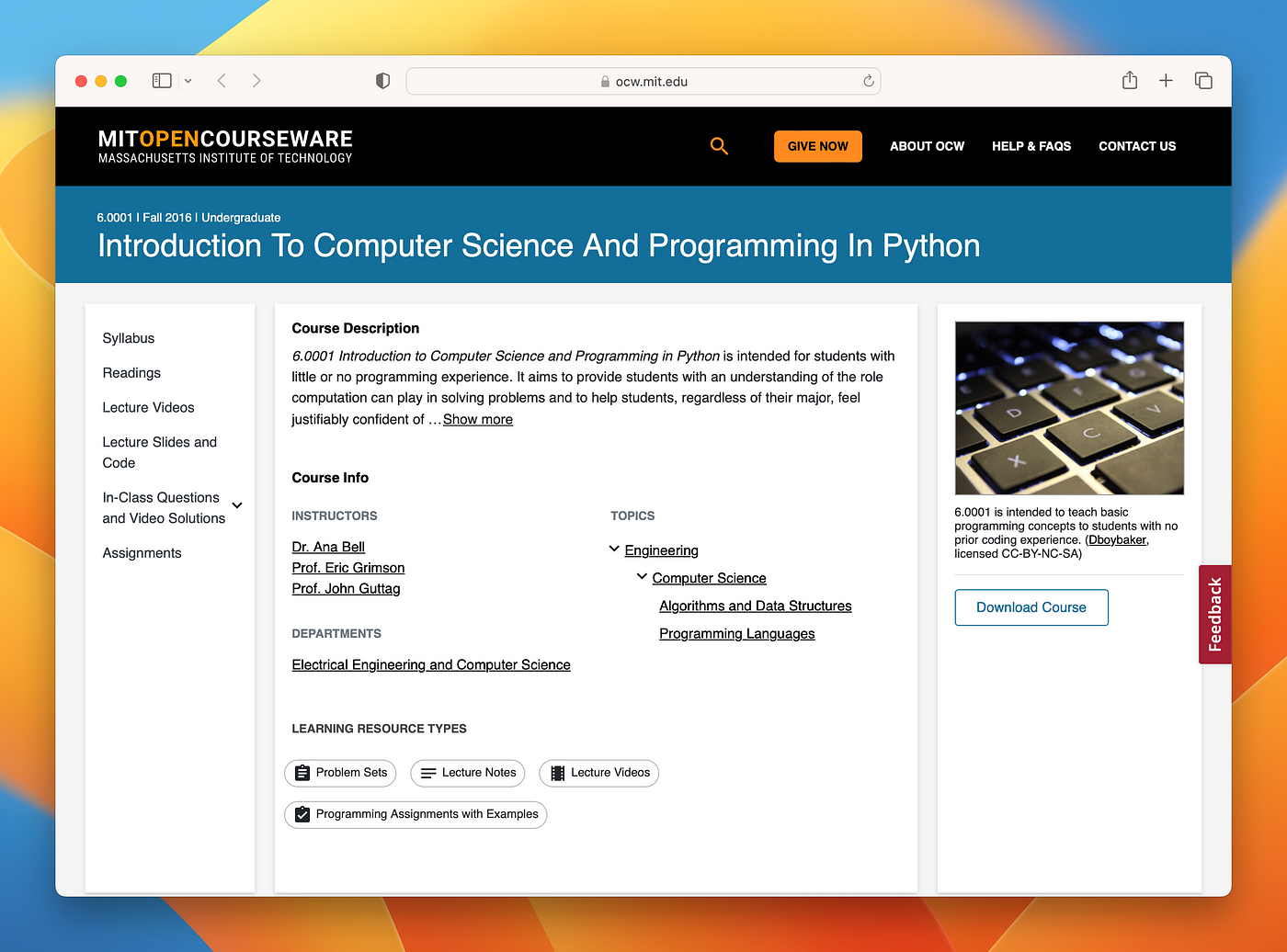
Image Source: X
This open courseware is put together by the Massachusetts Institute of Technology in partnership with edX. It is an online course created to help people with no computer science or programming experience learn to “think computationally and write programs to tackle useful problems.”
The course uses the Python programming language for its problem sets. The purpose of the course is to help you develop a broad understanding of programming. Since it’s an introductory course, it’s less likely to have an in-depth explanation of these topics.
However, the program promises to be rigorous and intensive and requires 14–16 hours a week over a period of nine (9) weeks to complete. Like Harvard, the course is free, but you have to pay for a certificate.
5. Programming for everybody (Getting Started with Python)
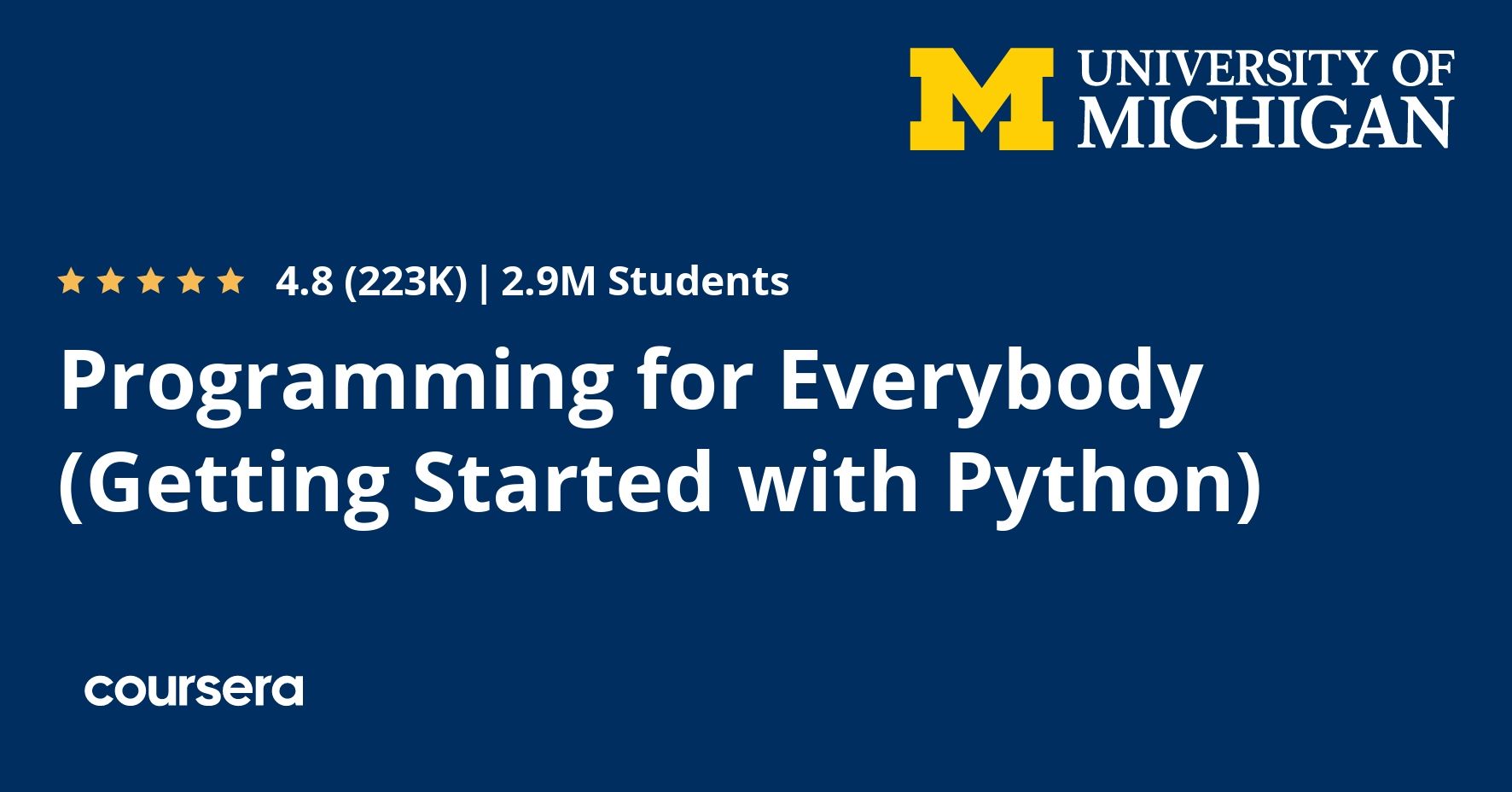
Image Source: Coursera
If you just want to learn how to write your program and utilize programming tools such as functions and loops, the University of Michigan designed this short and straightforward course for you. You would learn about why we program, variables and expressions, conditional code, functions, loops, and iteration.
The course was described as “easy and fun”. You won’t become a pro overnight with this course, but it’s a good starting point for someone without any programming knowledge. The course is self-paced and takes 19 hours to complete.
Advancing your career
Depending on your goal, you may or may not need to take other advanced courses in addition to the ones listed above. However, if you are just starting out a career in tech, you may want to check out tips that will help you advance your career as a newbie. Remember, you have a lot of free opportunities, and you can always start your journey today!
